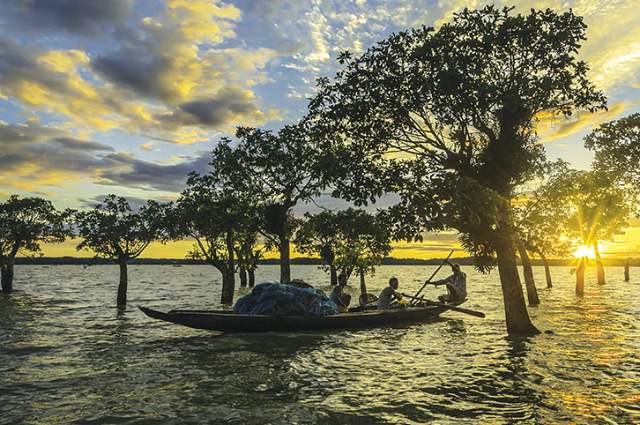INTRODUCTION
Sonbeel, situated in Assam, India, is recognised as the largest wetland in the state and the second largest in Asia. This ecosystem is important for conservation, socioeconomic livelihoods of the people, and for the upkeep of ecosystem goods and services. However, Sonbeel faces several factors that threaten the system; these are; Unauthorised fishing techniques, water pollution, and farming among them that are destructive to the ecosystem and pose a danger to the people who depend on the ecosystem.
ECOLOGICAL IMPORTANCE
Importance of the environment of Sonbeel is highly valuable and crucial to the stability of the Sonbeel region’s ecology. This wetland is also characterized by the existence of different types of plant and animal life such as birds, fish, and vegetation that are commonly associated with the wetland environment. Functioning as a water filter, Sonbeel filters out deposits and useful elements from water and retains them. In addition, it serves as a flood prevention mechanism as it conserves water and reduces the ravages or scourge of seasonal flooding that is common in Bangladesh. It presents a way of ensuring that natural balance is maintained in Sonbeel apart from it serving as research material on biodiverse areas as well as a way through which people can learn on biodiverse areas. In this way, the preservation of this type of diversity is beneficial for future generations to sustain the contribution of the wetlands to the ecosystem services, making intergenerational equity a critical aspect when managing Sonbeel.
SOCIO-ECONOMIC IMPORTANCE
Wetlands are integral to the livelihoods of the local populations residing in the Sonbeel districts. Numerous families depend on fishing, agriculture, and the harvesting of cane and medicinal plants for their sustenance. Salmon, in particular, serves as a significant protein source for the local diet, while agricultural lands benefit from nutrient-rich sediments deposited during seasonal floods. Additionally, Sonbeel aims to promote eco-friendly initiatives that offer local residents alternative income sources and enhance environmental awareness. The development of responsible tourism can create economic opportunities that prioritize conservation over exploitation. However, such initiatives must be meticulously planned and involve community participation to ensure their success.
THREATS TO SUSTAINABILITY
Sonbeel, despite its critical ecological and socio-economic significance, faces numerous threats stemming from human activities. Unsustainable fishing methods have led to a decline in fish populations, adversely impacting the livelihoods of local fishermen.
Additionally, pollution from agricultural runoff and disruptions in food production have further deteriorated the wetland ecosystem. The surrounding deforestation has also contributed to a reduction in the wetland's area and its capacity to sustain biodiversity. Furthermore, inadequate management practices, characterized by weak enforcement of environmental regulations and a lack of awareness regarding sustainable practices among local residents, exacerbate these issues. These challenges underscore the necessity for a comprehensive approach to wetland management that integrates both ecological and socio-economic considerations.
STRATEGIES FOR SUSTAINABLE MANAGEMENT
1. Community Engagement:
Empowering local communities residing in and around Sonbeel to take on the role of wetland stewards is essential for effective management and conservation.
2. Water Quality Management:
Initiatives aimed at enhancing the water quality of Sonbeel should include the development of a water treatment plan, the regulation of agricultural practices in the vicinity, and the promotion of environmentally sustainable waste management techniques.
3. Biodiversity Conservation:
Conducting research on biodiversity to identify key species is vital for the conservation of the flora and fauna associated with Sonbeel, as well as for planning the establishment of protected areas.
4. Climate Resilience:
Implementing climate-resilient strategies for Sonbeel can involve the natural replanting of vegetation and the careful selection of coastal housing, alongside efforts to restore wetlands and enhance flood mitigation measures.
CONCLUSION
The conservation of Sonbeel is crucial for maintaining its distinctive biodiversity and ecological roles, as well as for enhancing the livelihoods and welfare of the surrounding communities. Adopting a comprehensive strategy that integrates environmental safeguarding with socio-economic progress is essential to guarantee that Sonbeel continues to serve as a vital asset for future generations. To realize this objective and safeguard the precious resources of Sonbeel, it is imperative to foster collaboration among governmental bodies, local populations, and international organizations.

